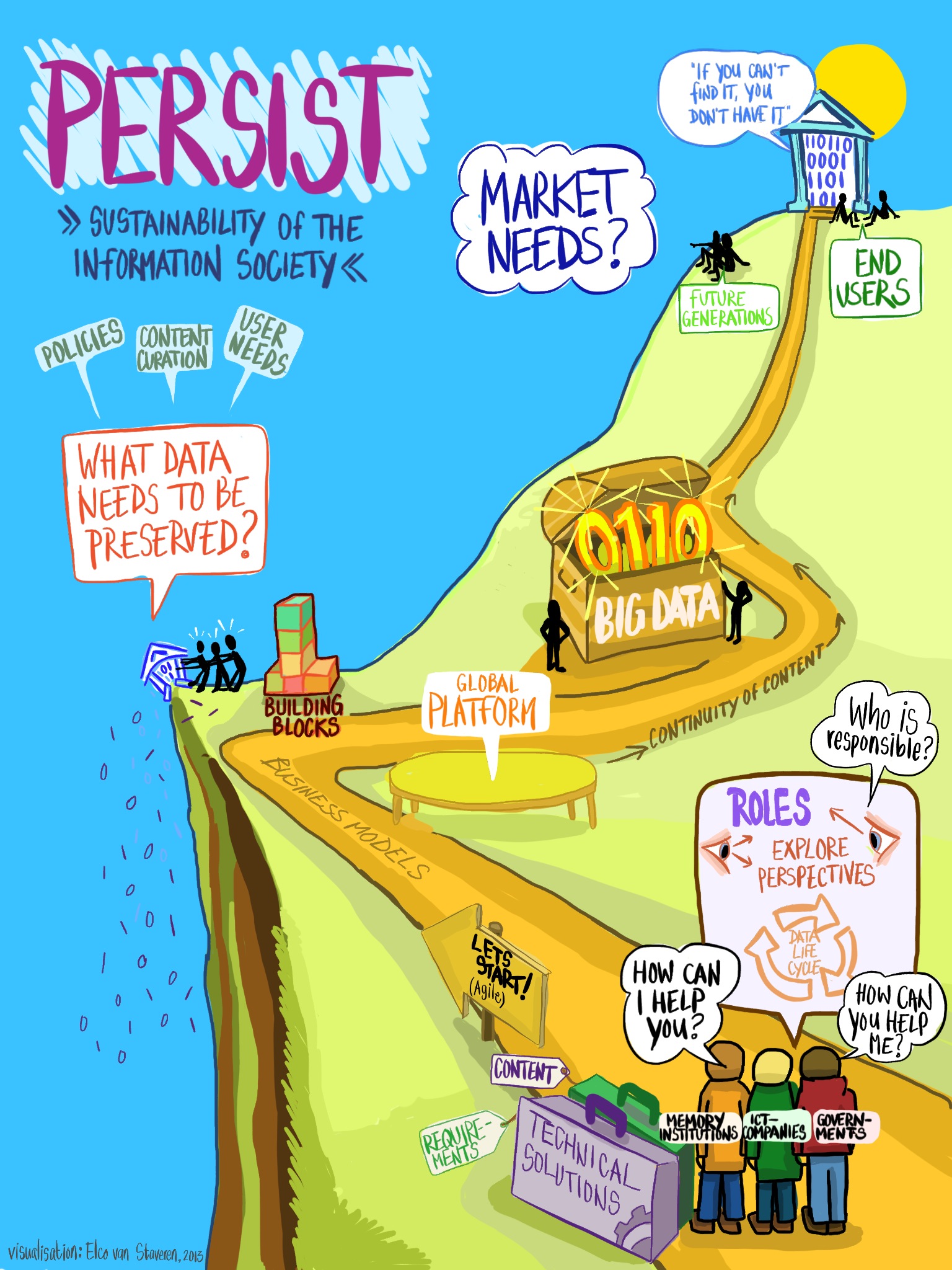Why PERSIST?
Digital Documentary Heritage has critical importance for humanity as a key resource for knowledge creation and sharing. We have become an information society and require sustainable and effective solutions for long term use of digital information. Ensuring reliable long-term use of information and knowledge is a shared responsibility of public and private sectors of the Information Society, including Governments, Memory Institutions in the broad sense of the term, and Information & Communication Technology (ICT) industry. UNESCO has a convening power on a global level to bring these parties to the table. UNESCO PERSIST is part of the Preservation Sub-Committee within the Memory of the World (MoW) Programme. It aims to support a dialogue and joint actions of key stakeholders around barriers and opportunities for achieving long-term preservation and access to digital Documentary Heritage.
The Vancouver declaration
At the Memory of the World Conference in Vancouver (September 2012) international experts agreed that there is a pressing need to establish a roadmap for solutions, agreements and policies, that ensure long term access and trustworthy preservation of digital information. The roadmap included issues related to open government, open data, open access and electronic government. In order to establish such a roadmap, governments, social organizations and the ICT-industry musts work together.
The Unesco/UBC Vancouver Declaration was the starting point of the PERSIST Project, which was officially launched at the UNESCO international conference in The Hague on 5 and 6 December 2013. The rationale behind PERSIST stems from ongoing UNESCO work in the preservation of the documentary heritage. Already in 2003, in its visionary Charter for the Preservation of the Digital Heritage, article 12, UNESCO defined its role ‘to serve as a reference point and a forum where Member States, intergovernmental and international non-governmental organizations, civil society and the private sector may join together in elaborating objectives, policies and projects in favour of the preservation of the digital heritage’.
PERSIST Project
The PERSIST project served as a catalyst for the UNESCO Digital Preservation work. As part of the Action Plan for Strengthening the Memory of the World Programme (adopted by the 191th Executive board, objective 4a), UNESCO joined forces with the International Council on Archives (ICA) and the International Federation of Library Associations and Institutions (IFLA) to provide a global platform with the convening and advocacy power of UNESCO.
In close cooperation with other stakeholders, PERSIST project has contributed to the sustainability of the information society through long-term preservation and access to information.The objective has been to secure effective mechanisms for governance and access to knowledge and information over long time. To accomplish this, PERSIST has worked on cooperation and dialogue between governments, social organizations, and the IT-industry, and has promoted practical solutions for sustainable digital preservation.

(Visualisation of the PERSIST project created by Elco van Staveren during the international conference at which the kick-off of PERSIST took place. 2013)
Working groups
Within the PERSIST project, three separate topics have been identified and addressed by three PERSIST Working Groups (WGs) with initial mandate and leadership:
- With the topic of Digital Preservation Policies, PERSIST raises awareness among all stakeholders, including governments and the ICT-industry, about the importance of cooperation to achieve sustainable digital preservation. This working group is led by Unesco/MoW.
- The topic Technology puts the focus on a stronger collaboration between memory institutions and the ICT-community, especially in the area of the archiving of legacy software. This working group is led by ICA;
- The third topic, Content and Best Practices, aims to enhance the practices in memory institutions across the globe in the area of content curation and digital preservation. This working group is led by IFLA.
For more information about the Working groups, see PERSIST organisation.
In March 2016, at the PERSIST meeting in Abu Dhabi (UAE), it was agreed that PERSIST will formally become a part of the UNESCO Memory of the World Programme.
In 2017 PERSIST was established within the Preservation Sub-Committee as a permanent core reportable function that complements the existing MoW Sub-Committee’s initiatives. PERSIST is focusing on the policies, strategies, and practices related to the sustained accessibility and use of digital artefacts, that would otherwise be inaccessible through technological obsolescence. The Preservation Sub-Committee has a long history, dating back to 1993 when the International Advisory Committee (IAC) of the Memory of World Programme formed an expert group to advise and coordinate the technical aspects of the MoW Programme. This group was then officially established as the Sub-Committee on Technology (SCoT) of the IAC at its 2nd Meeting in 1995.
